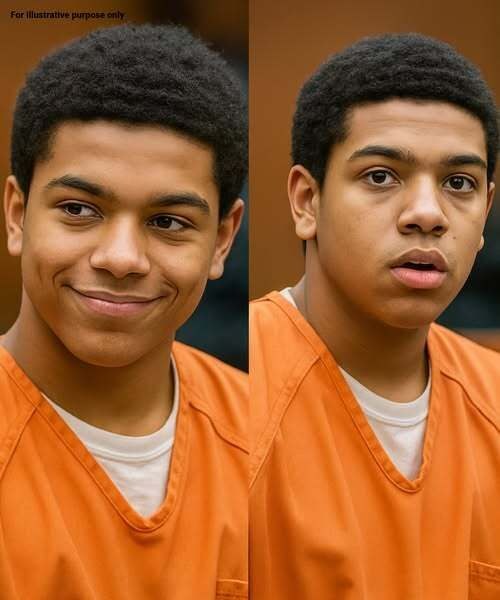Ethan Miller swaggered into the courtroom as if it were a stage made for him, hands shoved into the pockets of a hoodie two sizes too big, chin tilted high in practiced defiance. Only fifteen, he already wore the sharp edge of a kid who thought the world existed to tolerate him, not teach him. Families sat stiffly on the benches, their murmurs dipping to silence as his case was called, but Ethan never lost that grin—a small, crooked smirk that mocked every rule, every warning, every adult in his orbit. Even when the prosecutor read the list of petty thefts he’d proudly committed, he barely blinked, as if stealing candy bars and earbuds were nothing more than trophies from a game only he knew how to win.
Judge Rebecca Harmon saw something different. Years of juvenile cases had trained her well—she could spot the difference between fear disguised as rebellion and actual arrogance. Ethan wasn’t scared; he was certain he couldn’t be touched. His mother trembled quietly in the back row, her hope long eroded. His father wasn’t there at all. When Ethan muttered his plea—“Guilty, I guess”—the judge didn’t raise her voice. She didn’t need to. The weight of her silence pressed harder than any shout. And when Ethan smirked that stores “could afford” being robbed, she knew a lecture would do nothing. What she gave him instead was the one thing he’d never been forced to face: consequence with a human face.
She sentenced him to forty hours of community service at the exact convenience store he had stolen from—under the stern supervision of Mr. Patel, the owner who worked long nights and longer mornings just to keep his business afloat. The smirk vanished. And over the next weeks, the boy who once mocked police officers and rolled his eyes at authority found himself sweeping floors while strangers whispered, “That’s the shoplifting kid.” The accountability group hit even harder—shop owners explaining how theft broke more than budgets; veterans explaining how they’d lost entire livelihoods to petty crime; single mothers tearfully describing raising prices for the elderly because thieves thought stealing was “just a game.” With each session, Ethan’s arrogance peeled away until all that was left was a boy realizing, painfully, that he’d never once thought about anyone but himself.
When he finally returned to Judge Harmon’s courtroom, he no longer came with swagger. He handed over weeks’ worth of reflections, each written with shaky honesty. His final entry read: I thought stealing hurt nobody. I was wrong. I don’t want to be that kind of person anymore. His mother cried—a different kind of tears this time, softer, relieved. Judge Harmon read his words aloud, letting them settle over the room like a lesson every young heart needed to hear. “You entered my courtroom smirking,” she told him gently. “You leave it aware.” And under the fluorescent lights of that courtroom, Ethan Miller walked out—not triumphant, not arrogant, but humbled, a boy finally stripped of the illusion that nothing could touch him. He never smirked again.
